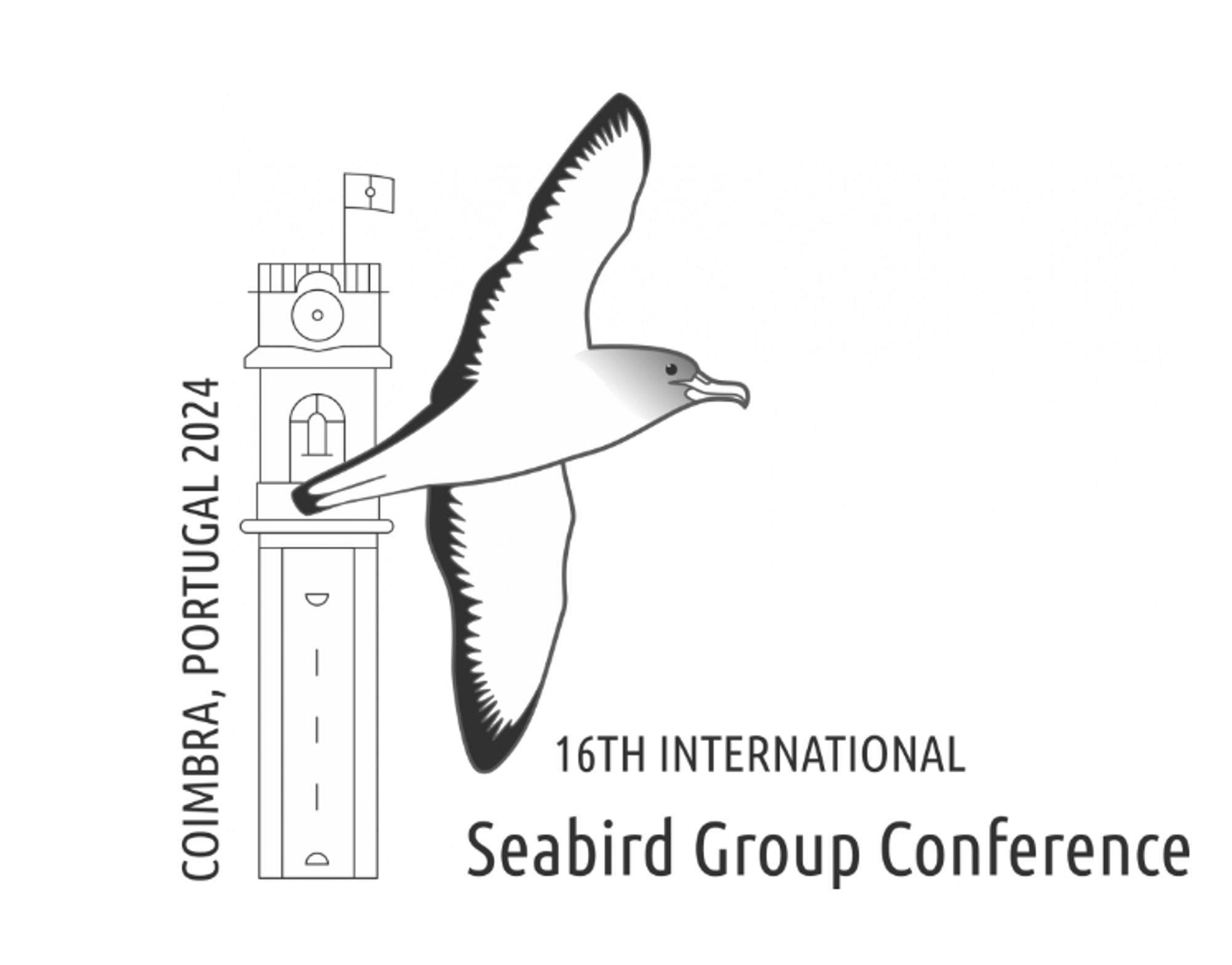
The 16th International Seabird Group Conference was held at the University of Coimbra in Coimbra, Portugal over 2-6 September 2024.
Several talks and posters on albatrosses, petrels and shearwaters were presented at the conference. ACAP-listed species covered included the Vulnerable Wandering Albatross Diomedea exulans and Critically Endangered Balearic Shearwater Puffinus mauretanicus.

Balearic Shearwater, mixed media by ABUN artist Catarina Vitorino for ACAP, after a photograph by Pep Arcos
A paper in the Fisheries Session entitled :Trends, threats, knowledge gaps, and global political responsibility for the conservation of priority populations of albatrosses and large petrels” was presented by Richard Phillips of the British Antarctic Survey, co-authored by Paulo Catry, Maria Dias, Steffen Oppel, David Anderson, Christophe Barbraud, Karine Delord, Graeme Elliott, David Nicholls, Kath Walker, Ross Wanless, Henri Weimerskirch and Martin Beal considered Priority Populations identified by the Albatross and Petrel Agreement.
The presentation’s abstract follows:
“The Agreement on the Conservation of Albatrosses and Petrels (ACAP) identified eight Priority Populations (PPs) of albatrosses and large petrels, each representing >10% of the global species total, and declining rapidly (>3% p.a.) mainly because of bycatch in fisheries. We assessed their trends, threats, knowledge gaps and key management needs. In all cases, recent count data indicated ongoing steep declines. Bycatch was the major driver, although invasive predators or disease [were] also important for two PPs. The key management action on land is therefore eradication of house mice on Gough Island. As bycatch is the paramount threat, we used tracking data to determine global political responsibility for fisheries and other marine threats by identifying jurisdictions where most time is spent, year-round. Six PPs spent more time in the High Seas than any [Exclusive] Economic Zone (EEZ), with one or more PPs spending >5% of time in the waters of four tuna Regional Fisheries Management Organizations (RFMOs), three non-tuna RFMOs, and [the] Commission for the Conservation of Marine Living Resources (CCAMLR). Other than the breeding range states, one or more PPs spent >5% of time in the EEZs of Chile, Australia, Namibia, South Africa and Peru. Our results highlight the urgent conservation actions required for these flagship populations, emphasize the importance of coordinated efforts to minimise bycatch in EEZs and the High Seas, and provide compelling justification for states to prioritise management efforts in their own jurisdiction and to coordinate advocacy at international level.”
Abstracts of all the presentations are available online in the 245-page Conference Proceedings.
John Cooper, Emeritus Information Officer, Agreement on the Conservation of Albatrosses and Petrels, 31 October 2024

 English
English  Français
Français  Español
Español